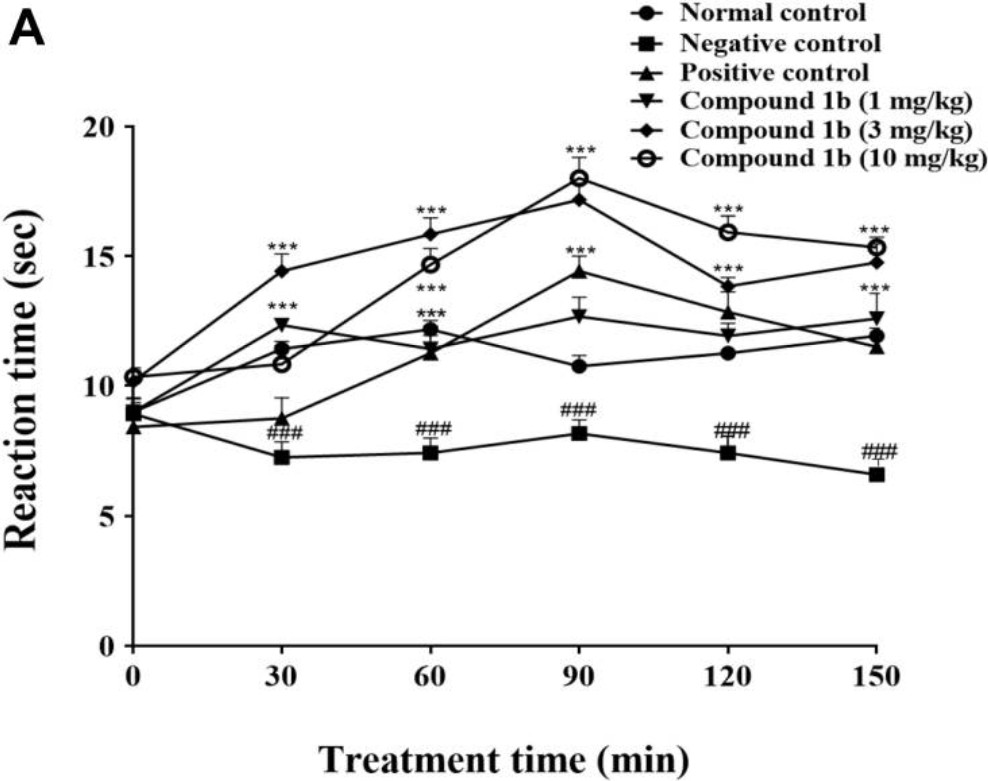- You are here: Home
- Services
- Disease Models
- Pain Models
- Inflammatory Pain Models
- Carrageenan-Induced Inflammatory Pain Model
Services
-
Cell Services
- Cell Line Authentication
- Cell Surface Marker Validation Service
-
Cell Line Testing and Assays
- Toxicology Assay
- Drug-Resistant Cell Models
- Cell Viability Assays
- Cell Proliferation Assays
- Cell Migration Assays
- Soft Agar Colony Formation Assay Service
- SRB Assay
- Cell Apoptosis Assays
- Cell Cycle Assays
- Cell Angiogenesis Assays
- DNA/RNA Extraction
- Custom Cell & Tissue Lysate Service
- Cellular Phosphorylation Assays
- Stability Testing
- Sterility Testing
- Endotoxin Detection and Removal
- Phagocytosis Assays
- Cell-Based Screening and Profiling Services
- 3D-Based Services
- Custom Cell Services
- Cell-based LNP Evaluation
-
Stem Cell Research
- iPSC Generation
- iPSC Characterization
-
iPSC Differentiation
- Neural Stem Cells Differentiation Service from iPSC
- Astrocyte Differentiation Service from iPSC
- Retinal Pigment Epithelium (RPE) Differentiation Service from iPSC
- Cardiomyocyte Differentiation Service from iPSC
- T Cell, NK Cell Differentiation Service from iPSC
- Hepatocyte Differentiation Service from iPSC
- Beta Cell Differentiation Service from iPSC
- Brain Organoid Differentiation Service from iPSC
- Cardiac Organoid Differentiation Service from iPSC
- Kidney Organoid Differentiation Service from iPSC
- GABAnergic Neuron Differentiation Service from iPSC
- Undifferentiated iPSC Detection
- iPSC Gene Editing
- iPSC Expanding Service
- MSC Services
- Stem Cell Assay Development and Screening
- Cell Immortalization
-
ISH/FISH Services
- In Situ Hybridization (ISH) & RNAscope Service
- Fluorescent In Situ Hybridization
- FISH Probe Design, Synthesis and Testing Service
-
FISH Applications
- Multicolor FISH (M-FISH) Analysis
- Chromosome Analysis of ES and iPS Cells
- RNA FISH in Plant Service
- Mouse Model and PDX Analysis (FISH)
- Cell Transplantation Analysis (FISH)
- In Situ Detection of CAR-T Cells & Oncolytic Viruses
- CAR-T/CAR-NK Target Assessment Service (ISH)
- ImmunoFISH Analysis (FISH+IHC)
- Splice Variant Analysis (FISH)
- Telomere Length Analysis (Q-FISH)
- Telomere Length Analysis (qPCR assay)
- FISH Analysis of Microorganisms
- Neoplasms FISH Analysis
- CARD-FISH for Environmental Microorganisms (FISH)
- FISH Quality Control Services
- QuantiGene Plex Assay
- Circulating Tumor Cell (CTC) FISH
- mtRNA Analysis (FISH)
- In Situ Detection of Chemokines/Cytokines
- In Situ Detection of Virus
- Transgene Mapping (FISH)
- Transgene Mapping (Locus Amplification & Sequencing)
- Stable Cell Line Genetic Stability Testing
- Genetic Stability Testing (Locus Amplification & Sequencing + ddPCR)
- Clonality Analysis Service (FISH)
- Karyotyping (G-banded) Service
- Animal Chromosome Analysis (G-banded) Service
- I-FISH Service
- AAV Biodistribution Analysis (RNA ISH)
- Molecular Karyotyping (aCGH)
- Droplet Digital PCR (ddPCR) Service
- Digital ISH Image Quantification and Statistical Analysis
- SCE (Sister Chromatid Exchange) Analysis
- Biosample Services
- Histology Services
- Exosome Research Services
- In Vitro DMPK Services
-
In Vivo DMPK Services
- Pharmacokinetic and Toxicokinetic
- PK/PD Biomarker Analysis
- Bioavailability and Bioequivalence
- Bioanalytical Package
- Metabolite Profiling and Identification
- In Vivo Toxicity Study
- Mass Balance, Excretion and Expired Air Collection
- Administration Routes and Biofluid Sampling
- Quantitative Tissue Distribution
- Target Tissue Exposure
- In Vivo Blood-Brain-Barrier Assay
- Drug Toxicity Services
Carrageenan-Induced Inflammatory Pain Model
Creative Bioarray has meticulously developed the carrageenan-induced inflammatory pain model for preclinical research, a testament to our commitment to excellence in the field. This model is highly regarded for its precise simulation of acute inflammatory pain in animals, offering an invaluable asset for delving into the intricacies of pain mechanisms and evaluating the effectiveness of prospective analgesic agents. Our clients can rest assured that by choosing our services, they are partnering with a team that prioritizes accuracy, consistency, and cutting-edge scientific advancements, making Creative Bioarray the preferred choice for their preclinical research needs.
Carrageenan is a versatile compound that exists in three primary forms: iota, kappa, and lambda. Among these, the lambda variant is particularly noteworthy for its application in preclinical research, where it is frequently employed to induce acute inflammatory responses in animal models. This is attributed to its distinctive property of adopting a gel-like state at room temperature, which, upon injection, triggers the development of thermal hyperalgesia—a condition characterized by an increased sensitivity to pain. The onset of this pain response typically reaches its zenith on the third day and at the fourth hour following administration, respectively, and can endure for up to 96 hours.
Our Carrageenan-Induced Inflammatory Pain Model
- Available Animal
- Mouse
- Rat
- Modeling Method
Carrageenan is injected subcutaneously into the plantar surface of the hind paw to induce inflammatory pain.
- Endpoints
- Clinical observation
- Behavioral tests: Von Frey test, Hot plate test, etc.
- Paw thickness
- qPCR or Western blot
- Histology analysis
- Other customized endpoints
Example Data
 Fig.1 Effects of thiazolidine derivatives on carrageenan-induced thermal hyperalgesia. (Malik et al. 2021)
Fig.1 Effects of thiazolidine derivatives on carrageenan-induced thermal hyperalgesia. (Malik et al. 2021)
Meanwhile, we also provide other inflammatory pain models that maybe you are interested in:
- Formalin-Induced Inflammatory Pain Model
- Complete Freund's Adjuvant (CFA)-Induced Inflammatory Pain Model
- Capsaicin-Induced Inflammatory Pain Model
Quotation and Ordering
Creative Bioarray boasts a team of scientists with profound therapeutic expertise and extensive experience in developing and validating disease models. We commit to offering our clients the most dependable services at the most competitive prices. If you are interested in our services, please feel free to contact us at any time or submit an inquiry to us directly.
References
- Malik, Z., et al. Thiazolidine Derivatives Attenuate Carrageenan-Induced Inflammatory Pain in Mice. Drug Des Devel Ther. 2021; 15:369-384.
- Yam, M.F., et al. Overview of Neurological Mechanism of Pain Profile Used for Animal "Pain-Like" Behavioral Study with Proposed Analgesic Pathways. Int J Mol Sci. 2020;21(12):4355.
Explore Other Options
For research use only. Not for any other purpose.

